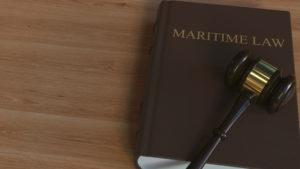
Understanding what general maritime law is requires some background on how laws come to be. While many are set by statute, others come from common law, court precedent (case law), and judicial doctrine. This is how general maritime law came to be. It has grown and changed over time thanks to the influence of the courts, not statutes.
General maritime law provides a way for offshore workers who are hurt or suffer an illness to recover compensation. While there are several federal statutes, primarily the Jones Act and the Longshore and Harbor Workers’ Compensation Act (LHWCA), to this end, they do not apply to all workers. They have strict requirements. Those who are not protected by these statutes have rights under general maritime law.
How does the General Maritime Law Work?
The laws set by governments a hundred or more years ago do not always apply to modern life today. This is true in the maritime trade, as well. The industry has adapted and changed, and so have the laws that create duties and provide protections to workers. This changing body of laws is general maritime law.
General maritime law offers ways to recover damages if you were injured or became ill while on the job somewhere that state workers’ compensation laws or other federal maritime laws do not apply.
Under general maritime law, you do not need to prove unseaworthiness or negligence. These are not fault-based claims. Even if your employer or the boat owner played no role in causing your injuries, you might be able to recover damages known as “maintenance and cure.”
What Benefits Are Available Under Maritime Law?
Under general maritime law, an injured or ill worker will receive “maintenance and cure” benefits until:
- They can return to their regular work activities
- They reach maximum medical improvement
There are two parts to these benefits:
- Maintenance: The cost of food, lodging, and other living expenses while the maritime worker is undergoing treatment, off the vessel, and unable to work
- Cure: Medical bills related to the injury or illness, including testing, treatment, medications, and more
For a free legal consultation, call (800) 537-8185
What If the Boat Was Not Seaworthy?
General maritime law also requires employers, ship owners, and operators to ensure their vessel is seaworthy. This includes:
- Having proper equipment
- Training the crew appropriately
- Maintaining the vessel
Some examples of an unseaworthy vessel include:
- Slip or trip hazards, such as missing grip strips on stairs
- Poorly maintained ladders or stairs
- Malfunctioning, broken, or missing equipment
- Missing or non-functional safety gear
- Poorly trained crew members
It is crucial to note that it is not only maritime workers who can file this type of claim. Others on the boat, such as cruise ship passengers, may have a case based on their offshore injuries, as well.
What Are the Differences Between the Jones Act and General Maritime Law?
Many offshore workers qualify to take legal action under the Jones Act, 46 U.S. Code §30104. A Jones Act case has many things in common with those filed under general maritime law. However, those covered by this statute have additional causes of action and can seek other types of damages.
If you qualify as a seaman under this act, you may be able to prove your employer’s negligence caused your injuries and recover:
- Medical care costs, current, and future
- Lost wages and reduced capacity to earn
- Pain and suffering damages
Click to contact our personal injury lawyers today
Do I Need an Attorney to Handle My Maritime Claim?
While there is no mandate saying injured maritime workers or others taking action under these laws must have legal representation, it is a good idea. These laws are both broad and specific and can be confusing. This is true even for attorneys who do not handle these cases regularly.
If you work with a law firm familiar with the Jones Act, LHWCA, and general maritime law, they can help you in several ways:
- Determining which laws apply to your case
- Investigating what happened and provident negligence
- Valuing your recoverable damages or benefits
- Filing your claim
- Representing your best interests
- Suing, as necessary
Maritime law firms generally handle other types of personal injury and workers’ compensation cases, as well. They often provide complimentary case reviews to victims and handle these cases based on contingency, meaning you will not need to pay any upfront fees.
Contact a Maritime Lawyer from Our Law Firm for Help with Your Injury Claim
The Morris Bart law firm offers free consultations to offshore and marine workers hurt on the job. We can assess your case and explain your options for pursuing financial recovery. Our team of maritime law attorneys operates 15 locations in four Gulf South states: Louisiana, Mississippi, Alabama, and Arkansas. In addition, we work on a contingency fee basis.
Call (800) 537-8185 today to learn more about how we may be able to help.
Questions?Call (800) 537-8185
to find a Morris Bart office near you.

